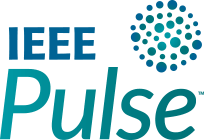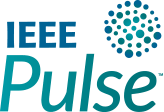Edward Klees and H. Robert Horvitz, MIT Press, 2012. ISBN: 978-0-262-51793-5. xiii + 125 pages, US$30.
If you are an academic working in the areas of biotechnology or pharmaceutical development, this brief text, written by a lawyer and an accomplished researcher, can be a good quick introduction to some of the ramifications of entering into a consulting or advising (or both) agreement with industry. The text should be useful for initial advice regarding the protection of your intellectual property (IP) and/or expertise, with the constraints imposed by your contract(s) with your university and other (if extant) obligations. If you are not in this area of endeavor and, for example, are looking for advice regarding general consulting agreements or seeking to use your expertise in lawsuits involving medical forensics, etc., this is not the book for you.
Before beginning the text, the reader is immediately exposed to a disclaimer: this text is not legal advice! This message is repeated several times. This is a good message; the remainder of the text will bring the reader up to speed on several items to think about when considering a consulting agreement. At the very least, it may assist in developing a checklist of items to have in hand when talking to a lawyer and/or the persons writing your contracts (or agreements, as this text would use.)
The following items are discussed in the ensuing chapters: issues to consider when developing your contract, such as IP rights, prior university commitments, and negotiation of items. What constitutes consulting, what roles might the researcher play in a company, and what are the obligations involved with each? What is the expected scope of services? What types of compensation are involved, if cash based, and what is your hourly and daily fee (and definition)? If compensation will be in stocks or options for stocks, etc., what are the tax considerations and vesting requirements? What is the scope of your confidentiality or nondisclosure obligations? Did you sign away IP rights with these agreements? What about noncompete agreements? Do you have limited time obligations and decent termination agreements? Can you be sued as a result of your interactions with and obligations to the company? Should you consider a legal status for your work, using, for example, a limited liability corporation umbrella for your interactions?
The above material is covered in 16 chapters that range in length from 29 pages (shares, stock options, and taxes) to one-quarter page (conclusion). The text concludes with an appendix consisting of a generic consulting agreement, followed by a glossary and notes pages.
Biomedical Consulting Agreements: A Guide for Academics is useful to academics working in biotechnology or pharmaceutical development and entering into a consulting agreement in industry.


